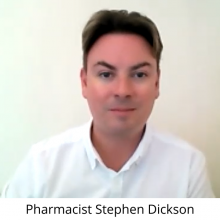Can Low Dose Naltrexone (LDN) help with cancer patients, specifically breast cancer and skin cancer?
We've seen so many people respond very well and get much longer than they would have.
For skin cancer, I can cite an example where they had stage four melanoma, usually multiple sites. Really, the outlook probably was three to six months. Not long after starting the LDN she started to feel a lot better. Obviously, she took the standard cancer therapy and some immunotherapy as well. Even with that, the outcomes are still not great statistically. But she's still around more than ten years later, and there's no sign of the cancer returning. That seems to be very much replicated in certain types of melanoma. From the cancer doctors that we speak to or the specialist oncologists that we speak to.
In breast cancer, it's very difficult to say anything's going to help with every type of cancer, but there are a great number of trials, for example, the redo trial, which you can find in PubMed. The doctors there are using LDN, along with other medications in breast cancer. One of the medications that's been used as well as LDN in breast cancer is Metformin, which is a diabetes drug. That's just another drug that's been found to be useful in that particular type of cancer, slowing down in progression or helping with metastases etc.
The simple answer is most likely yes, in a great number of people, but it will be case-dependent, and you need someone who's experienced in prescribing it to find out whether or not that's going to be useful in the case.
Another important thing is, if you are doing something like LDN, which is off-book, and you're under the care of an oncologist, then you do need to tell them that you're doing that. Especially in cancer patients where there's a likelihood that you might at some point need pain control, taking naltrexone every day sort of rules out quite a number of painkillers that you could take. So your oncologist does need to know that you are taking LDN, so don't hide it or think you're doing something wrong. LDN is quite widespread mainstream medicine now, so it's not something to hide from your oncologist.








